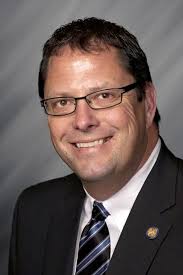No two ways about it, Delaware‘s racinos are failing. However, they have an ambitious plan to reverse that … providing the state is cooperative. One of the reasons the tracks  are struggling is an onerous 40% tax rate on table games, which the racinos would like to see reduced to 15%. Members of the Video Lottery Advisory Council also proposed “that the tax rate on table games be revised, either by lowering the rate or by subtracting half the revenue to help casinos cover payrolls for the labor-intensive games before distributing the remaining money among the state, the casinos and the horse racing industry.”
are struggling is an onerous 40% tax rate on table games, which the racinos would like to see reduced to 15%. Members of the Video Lottery Advisory Council also proposed “that the tax rate on table games be revised, either by lowering the rate or by subtracting half the revenue to help casinos cover payrolls for the labor-intensive games before distributing the remaining money among the state, the casinos and the horse racing industry.”
The council also proposed pegging the tax rate on slots to gross revenues: higher when play is strong, lower when it is not. The council is also pondering one outright subsidy by having the state pay all slot-vendor fees. (Shades of Maryland where, until recently, the state owned all the slot machines.) Tax credits for facility improvements and more aggressive market were also put on the table. The final council report won’t be submitted until next week, so we’ll see how much of this makes it into the final document.
* Ominously, talk of VLT slot routes is cropping up in Indiana. If this gets much farther in the Lege (although it seems unlikely at this point) it is and should be  anathema to Gov. Mike Pence (R). Pence has declared himself dead set against gambling expansion in Indiana and expansion doesn’t get any more blatant than that. In the meantime, lawmakers are talking about going to a 1:1 ratio of live dealers to electronic table games at the Hoosier State’s two racinos. After a probationary period of two years, the tracks could ask for more live dealers. Centaur Gaming President Jim Brown said, “We’re trying to balance the playing field so we can attract those customers from out of state and keep our Hoosiers in state when they want gaming as their entertainment.”
anathema to Gov. Mike Pence (R). Pence has declared himself dead set against gambling expansion in Indiana and expansion doesn’t get any more blatant than that. In the meantime, lawmakers are talking about going to a 1:1 ratio of live dealers to electronic table games at the Hoosier State’s two racinos. After a probationary period of two years, the tracks could ask for more live dealers. Centaur Gaming President Jim Brown said, “We’re trying to balance the playing field so we can attract those customers from out of state and keep our Hoosiers in state when they want gaming as their entertainment.”
Again, Pence might construe this as an expansion, but he’d face opposition from within his own party from legislators like state Rep. Tom Dermody, who told RTV-6, “Now, we have a situation where the casinos are struggling and we can either sit back and do nothing and watch them continue to decline, or try to help them become more competitive just like we would any other industry.”
Further ratcheting up the pressure, the gaming-study committee in the legislature came out with a unanimous recommendation to allow riverboat casinos to move to the safety of land. Tax credits for new infrastructure or capex upgrades were also endorsed. These  moves were taken in the hope of keeping Indiana’s casinos competitive with those in neighboring states (especially Ohio) that are drawing off revenue. Despite the overwhelming committee vote, Dermody (right) concedes that he’s facing an uphill fight in the Legislature, not least because of GOP majorities in both houses. A proposal to force Majestic Star to consolidate its two floating licenses into one land-based one already went down in flames.
moves were taken in the hope of keeping Indiana’s casinos competitive with those in neighboring states (especially Ohio) that are drawing off revenue. Despite the overwhelming committee vote, Dermody (right) concedes that he’s facing an uphill fight in the Legislature, not least because of GOP majorities in both houses. A proposal to force Majestic Star to consolidate its two floating licenses into one land-based one already went down in flames.
“Between now and January, the Majestic Star has to do a job of proving why they need two licenses when every other facility works off one license,” said Dermody, to which Majestic Star CEO Peter Liguori responded that the company can’t relocate the $135 million casino-hotel it’s contemplating without the economic benefit of two licenses.
Further urgency was lent to the discussions by the prospect of a tribal casino near South Bend. Lawmakers fear that, liberated from gaming taxes, the South Bend casino could offer bigger jackpots and more generous promotions. “I don’t want to say, ‘The Indians are coming, the Indians are coming.’ But they’re coming. We have to be prepared,” fretted state Sen. Jim Arnold (D).
Less controversial recommendations included extended the free-play tax deduction that saves the industry $5 million a year. Likewise a repeal of the $3 million tax on casino admissions, although an alternative revenue source has not been identified.
* Profits at Bally Technologies rose 9% last quarter on revenues of $321 million. In lieu of a conference call — because Bally is in the process of being consumed by Scientific Games — the company released a statement by CEO Richard Haddrill: “We achieved record first quarter revenue and excellent overall operational results in the quarter.”

